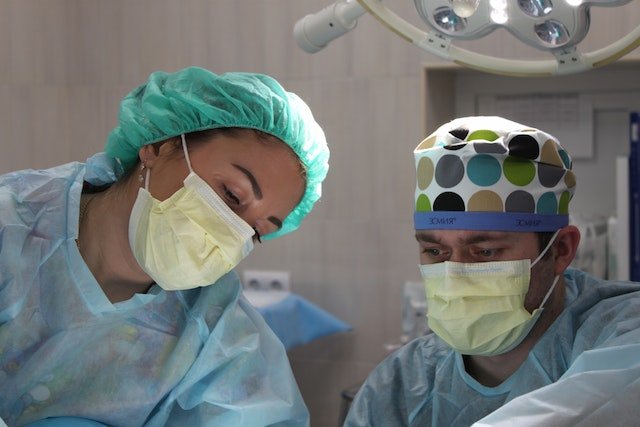While the healthcare profession is gratifying, doctors, nurses, and other medical staff face many occupational hazards and risks. Some of these dangers are well known, but others are less anticipated. Instead, they creep up on you and can take a significant emotional and bodily toll. This article explores five unforeseen dangers that healthcare workers may encounter.
1. Exposure to Infectious Diseases
Healthcare workers are highly exposed to infectious diseases through contact with bodily fluids, airborne droplets, contaminated surfaces, and medical equipment. Pathogens such as tuberculosis, hepatitis B and C, and HIV pose a threat if proper safety protocols are not followed. Recent pandemics and outbreaks of illnesses like COVID-19, SARS, and Ebola highlight the dangers of emerging infectious diseases in healthcare settings and how dangerous exposure can be. Frontline doctors and nurses face a high risk of exposure and infection. The overuse of antibiotics has led to the birth of drug-resistant bacteria that can be difficult to treat.
2. Physical and Ergonomic Hazards
Nurses and orderlies face risks of back injuries, muscle strains, and other issues from moving and repositioning patients regularly. Proper use of lifting equipment and team lifting techniques are critical for preventing injury. Hazardous substances used for diagnostics, disinfection, and treatment can pose dangers if mishandled or accidentally released.
To minimize exposure, chemotherapy drugs and other toxic medications often require the use of specialized closed-system transfer devices during preparation and administration. Staff working in radiology and diagnostic imaging face risks associated with high radiation doses from fluoroscopy and CT scans and high noise levels that can impact hearing over time without proper safety measures in place.
3. Emotional and Psychological Stress
Witnessing traumatic injuries, medical emergencies, and life-threatening situations takes a psychological toll. Coping with the suffering and death of patients can lead to issues like post-traumatic stress disorder if not properly addressed. Constant demands, long work hours, and emotional exhaustion from caring for patients can result in feelings of cynicism, loss of empathy, and burnout among healthcare professionals throughout their careers.
Forming relationships with patients and caring for them during the treatment process or after a devastating medical diagnosis is emotionally taxing and difficult to deal with on an ongoing basis. Grief counseling and mental health resources are important for staff to help them understand their feelings better.
4. Workplace Violence and Aggression
Healthcare settings can be unpredictable, and there is a risk of violence from patients, families, or other visitors, especially when dealing with mental health conditions, trauma, substance abuse issues, or emotionally charged situations. Security safeguards and training on de-escalating aggressive behaviors are essential for minimizing risks of violence. Caring for patients with certain medical or mental health conditions like dementia, schizophrenia, or brain injuries can involve managing difficult and sometimes combative behaviors. Proper restraint techniques and medication protocols must be followed to ensure the safety of both staff and patients in these situations.
Facilities should generally provide their work staff as well as their patients with a very secure environment. Measures such as controlled access, security guards, metal detectors, additional lighting, alarm systems, and video monitoring are implemented for safety. Panic buttons, code white alerts, and self-defense training may also be provided for staff.
5. Legal and Ethical Challenges
Doctors, nurses, and other healthcare professionals face the possibility of malpractice lawsuits due to adverse outcomes, medical errors, or negligence. It contributes to high occupational stress and the practice of defensive medicine. Strict laws around patient privacy and health information require diligent effort to prevent unauthorized access or sharing of confidential medical data.
Failure to comply can result in heavy legal penalties. Complex medical decisions around life support, resuscitation, palliative sedation, and medical assistance in dying can present ethical dilemmas that take time to resolve. Guiding in advance care planning is important for healthcare providers to prepare for these situations.
Conclusion
While dangers exist in any profession, healthcare workers face unique hazards and risks. Understanding these risks and taking appropriate safeguards and precautions is critical for ensuring the well-being, safety, and longevity of our doctors, nurses, and medical staff. Our healthcare systems depend on these everyday heroes, so providing resources and support for their physical and mental health should be a top priority.
















